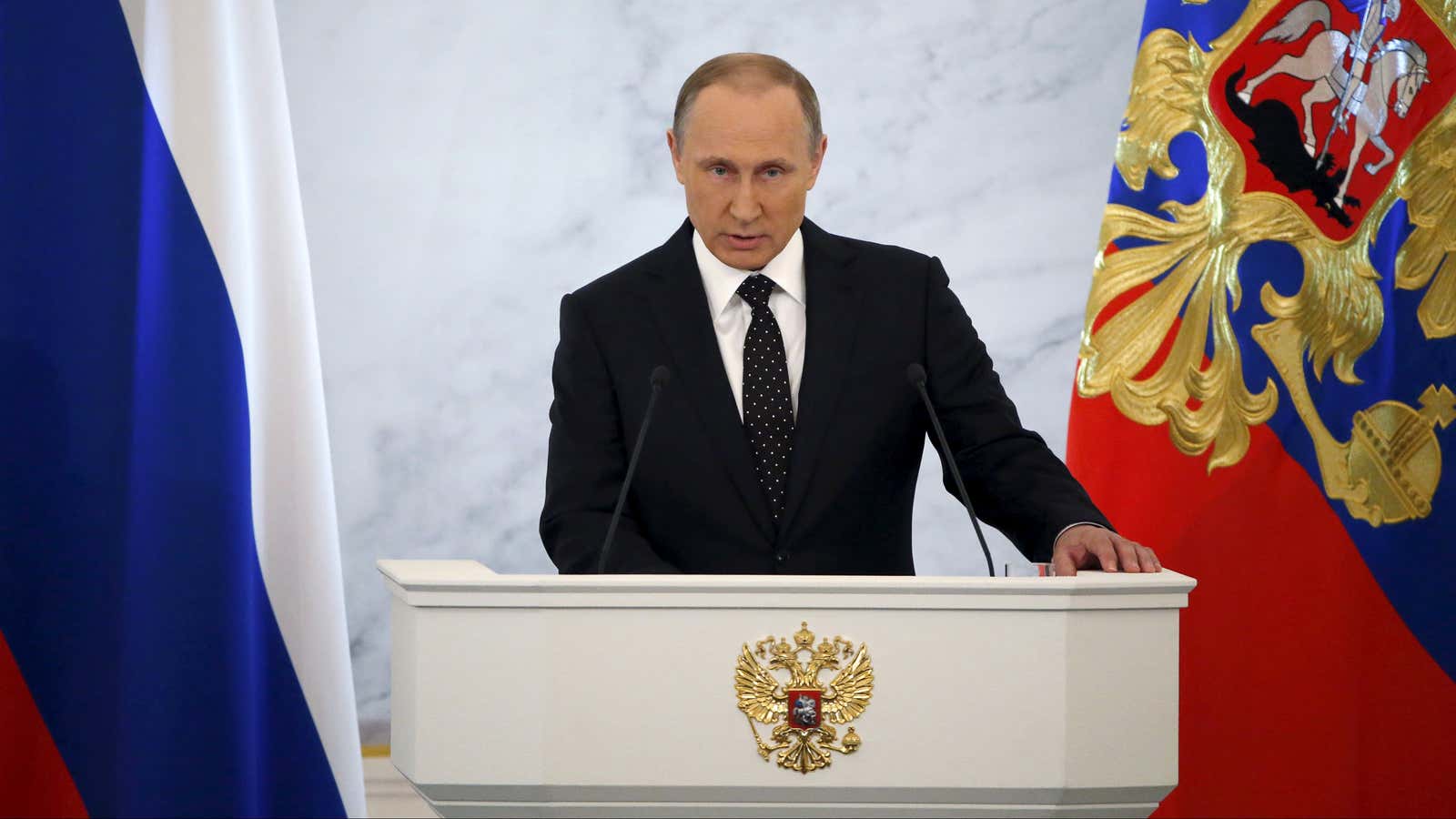Russia has crafted new legislation that will give it a legal justification to defy verdicts by international courts—like, say, a recent attempt by the European Court of Human Rights (ECHR) to make Russia pay out $2 billion to shareholders of defunct oil firm Yukos. The new law, signed on Tuesday (Dec. 16) by president Vladimir Putin, enables Russia’s constitutional court to decide whether to adhere to a verdict of an international court.
The law makes it clear that Russia’s constitution takes precedence over international law. But there’s one issue, as Human Rights Watch (HRW) points out. Russia is party to the Vienna Convention on the Law of Treaties, which bans countries from invoking their domestic laws to skirt international court rulings.
Russia still technically will have that obligation, so the new law will bring ”much uncertainty and opacity to the domestic legal system, further hinder Russia’s relations with its international partners, and delay justice even further for human rights victims,” HRW said.
The ECHR received 218 complaints against Russia’s notorious human rights abuses in 2014, and found that Russia violated European human rights law 122 times, including keeping defendants in metal cages during court proceedings.
Russian officials were dismissive of the criticisms. “I don’t see any problem there, I think that people are worrying for nothing,” Valery Zorkin, head of the constitutional court, told Reuters.
Separately, US Secretary of State John Kerry arrives in Moscow today to talk about the conflicts in Ukraine and Syria. Kerry says Russia “is playing a constructive and important role” in the latter conflict.
